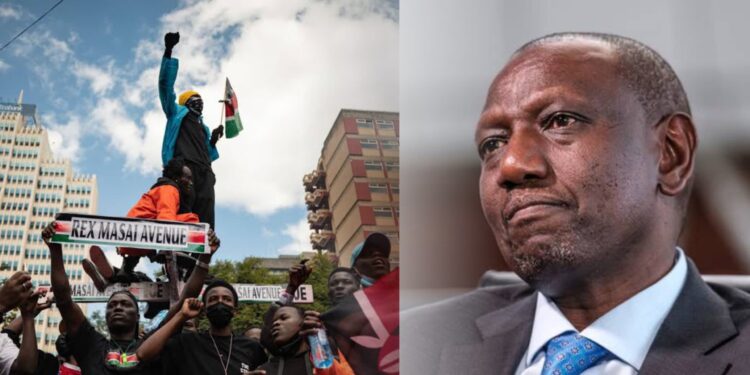By Lucy Adautin
Cautious investors are steering clear of long-term Kenyan Treasury bills and bonds, according to central bank data, adding further pressure to the government’s shift toward domestic borrowing after the abandonment of contentious tax hikes.
In the most recent debt auction on August 1, the benchmark one year Treasury bill attracted less than 10% of the targeted demand. This weak interest is driving up costs and complicating efforts to finance the heavily indebted government’s budget.
“It is going to be a problem and it feels like they are just kicking the can down the road,” said Kenneth Minjire, senior associate for debt and equity at AIB-AXYS, a Nairobi-based brokerage.
After protests that claimed over 50 lives, President William Ruto reversed course on tax increases totaling more than 346 billion shillings ($2.67 billion).
This reversal compelled the finance ministry to raise local borrowing targets by 42% to 404.6 billion shillings ($3.12 billion), despite the fact that most securities, except for 91-day Treasury bills, were already struggling at auction.
Central bank data revealed a sharp decline in demand for Kenyan debt instruments during the weekly auction, as domestic turmoil and violence swept through major urban centers.
During the week of June 24, as unrest flared, investors bid for only a third of the Treasury bills available from the central bank, while the bond auction that week saw a meager 2.4% subscription rate.
Prior to the protests, Treasury bills had a subscription rate of 94.7%, and bonds were consistently oversubscribed.
Central Bank Governor Kamau Thugge minimized worries about local financing, pointing out that it was still early in the financial year, and the revised borrowing target remained lower than the previous year’s.
“I really don’t see that we will not be able to meet the domestic financing requirements,” he said.




































